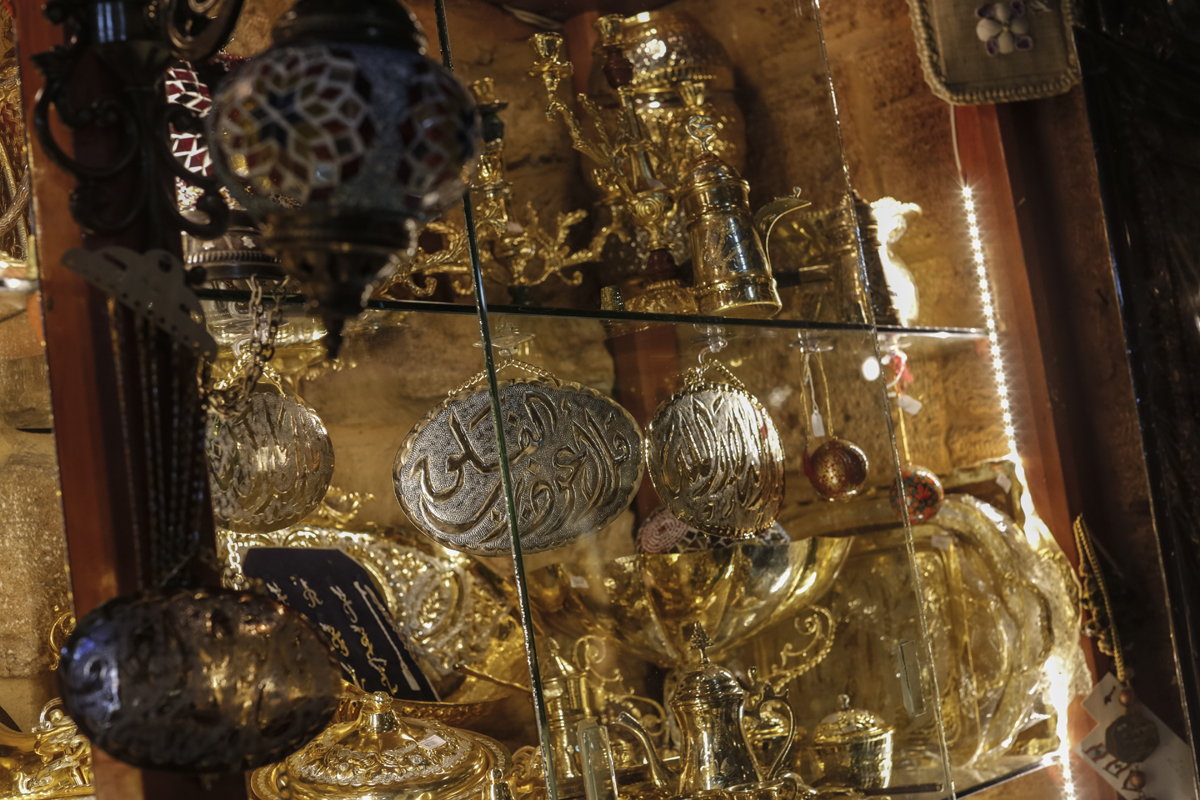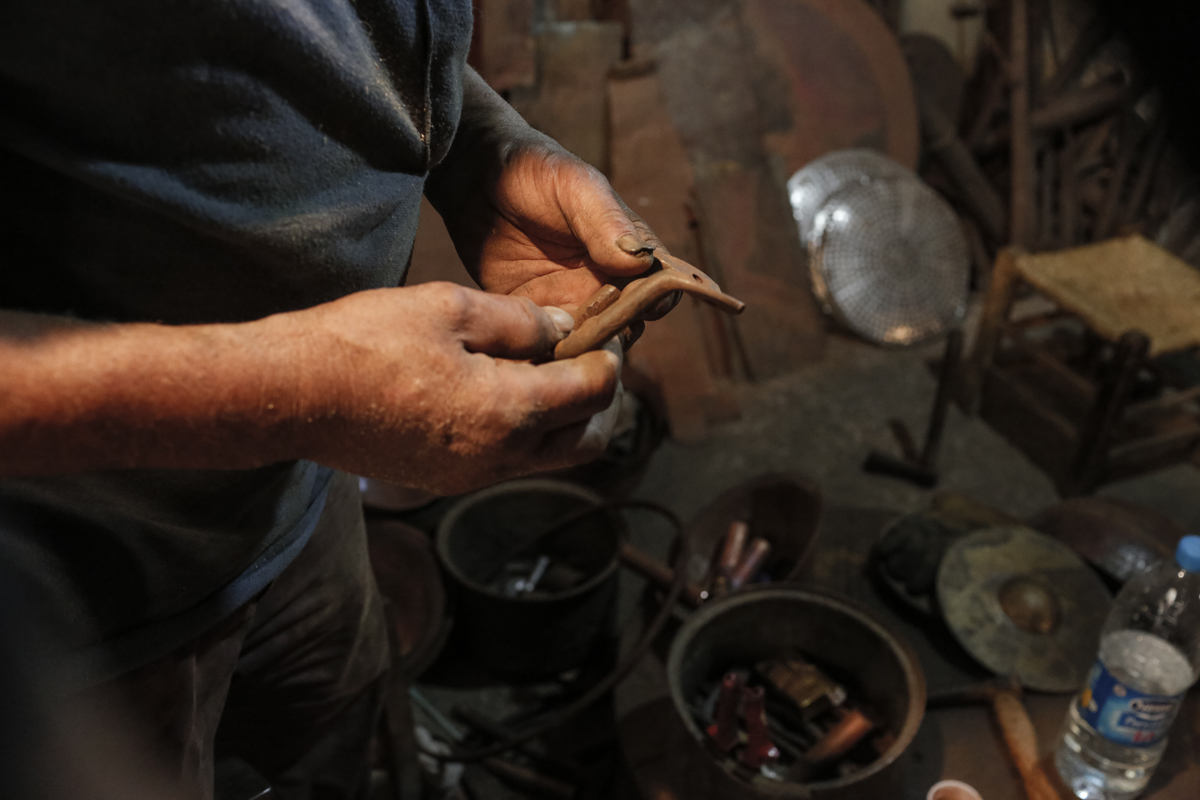Lebanon’s copper and brass trade continues to face challenges in today’s world. Luckily, some artisans are still working to keep the tradition alive. With the support of the Lebanese Ministry of Tourism, we learn more.
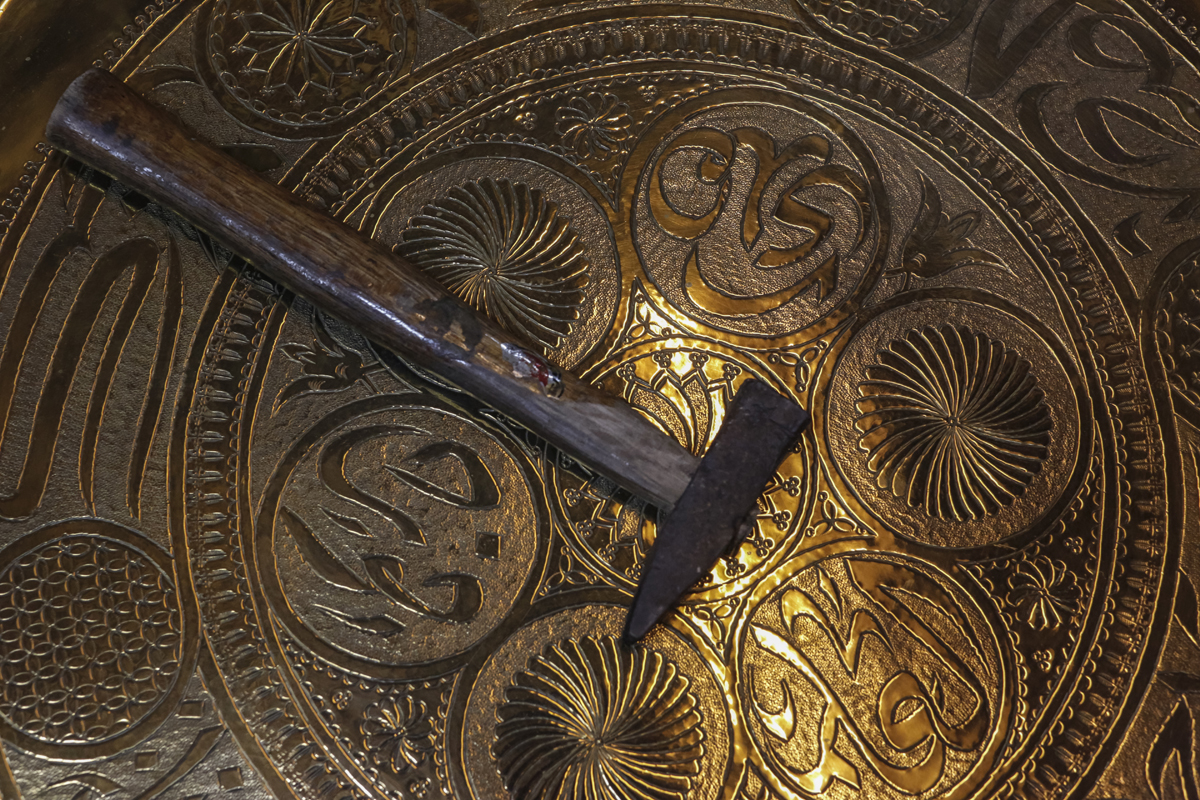
Photos – Sam Tarling
In an old workshop inside Tripoli’s cavernous souk, Osman Tartousy, hammers a brass bowl into shape. “It’s better than disco,” he shouts above the clamor. Now in his 70s, he has been working in that same shop since he was six. “In those days,” he reminisces, “you couldn’t talk when walking down Nahasin Street; the sound of hammers pounding on metal was so loud.”
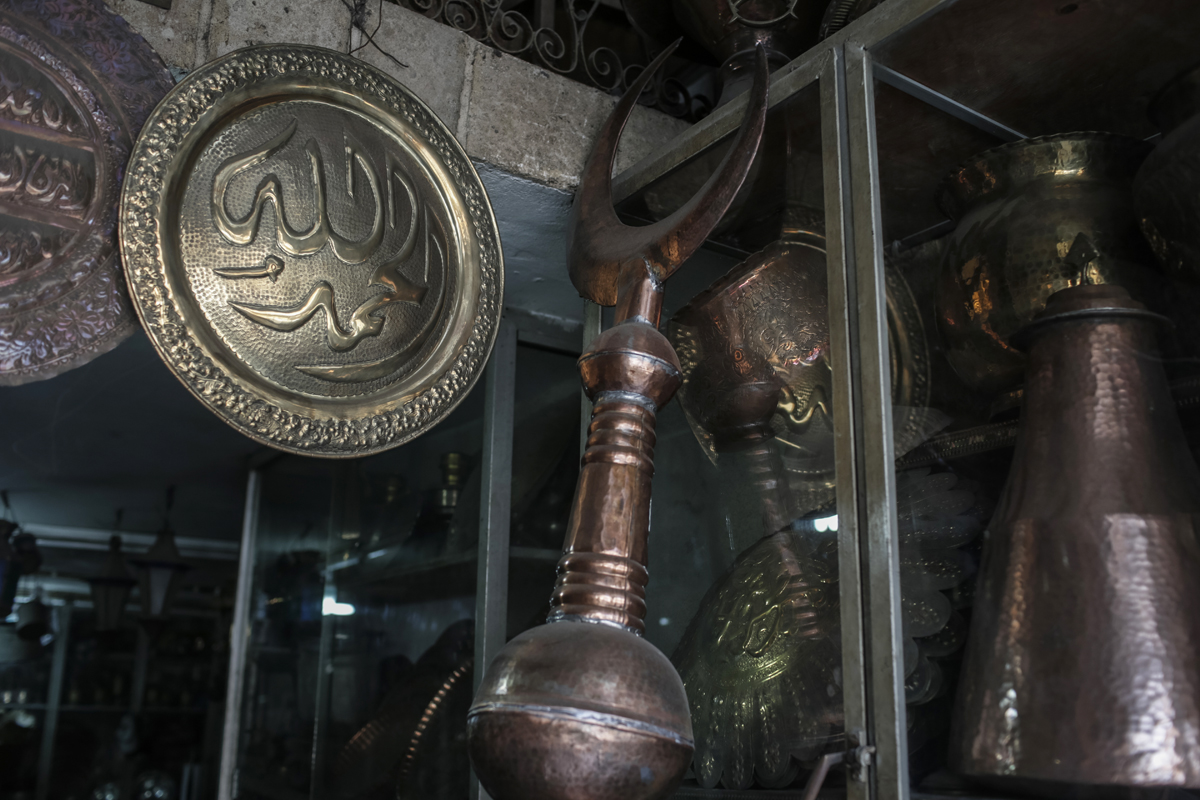
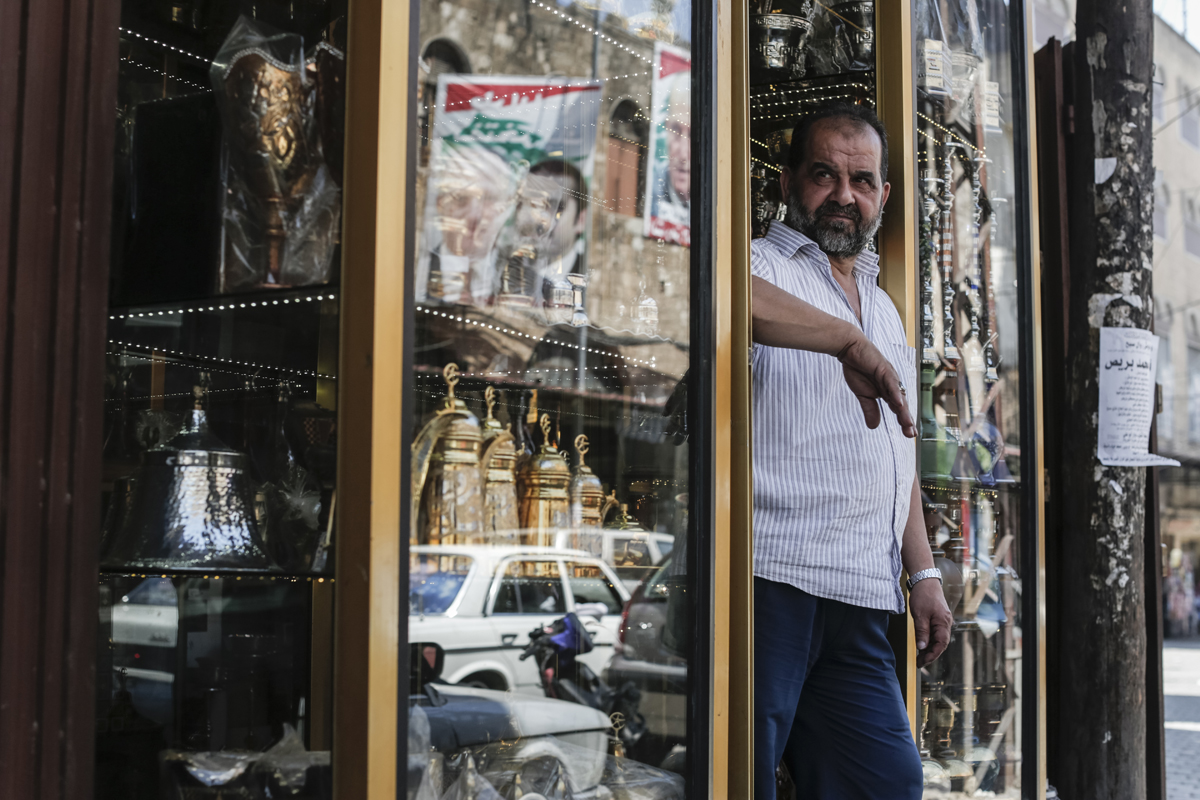
In Beirut’s once-thriving copper district, off the highway in Bourj Hammoud, old men sit outside their shops drinking coffee, watching the world pass by. The artisanal copper and brass trade in Lebanon stretches back centuries, but the industry that once supported families and entire neighborhoods now has a very different face. “The copper trade is a bad business,” says Raffi Karaminassian, who has all but given up on copper. Copper and brass are no longer widely used: the affordability of aluminum and stainless steel, and the scarcity of tourists has affected business.
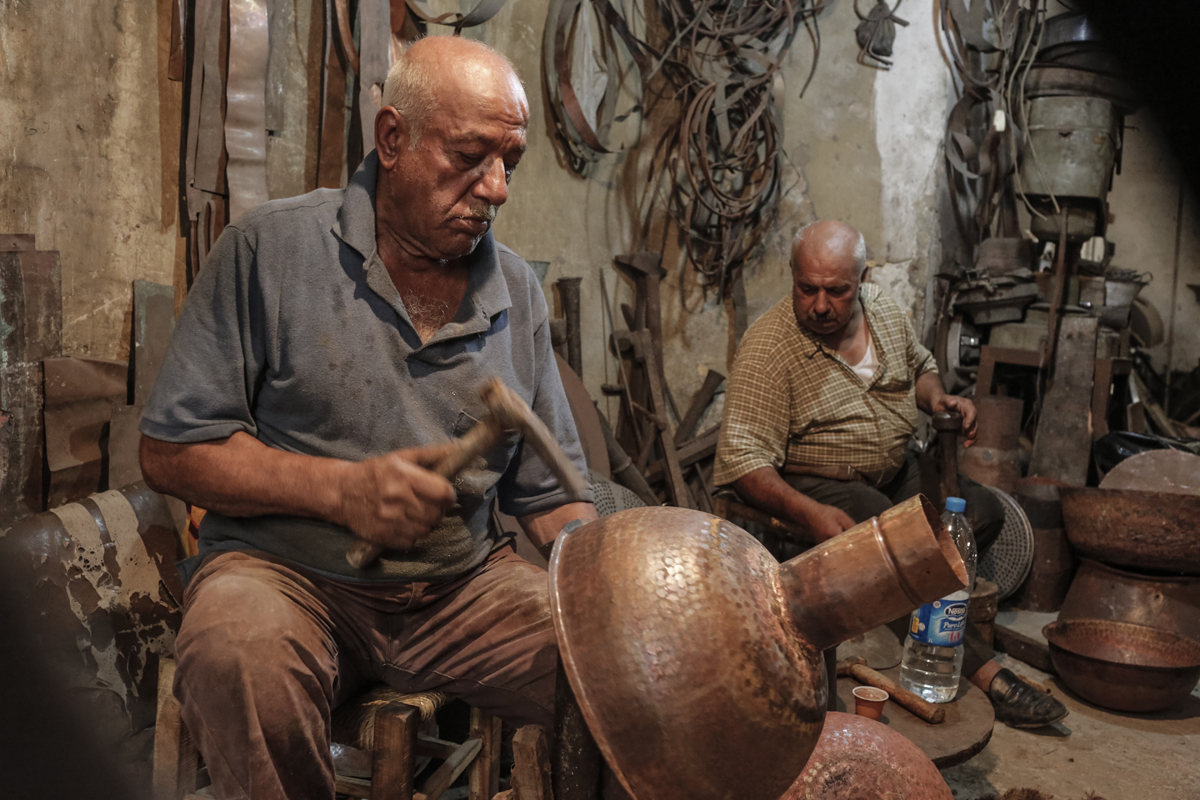
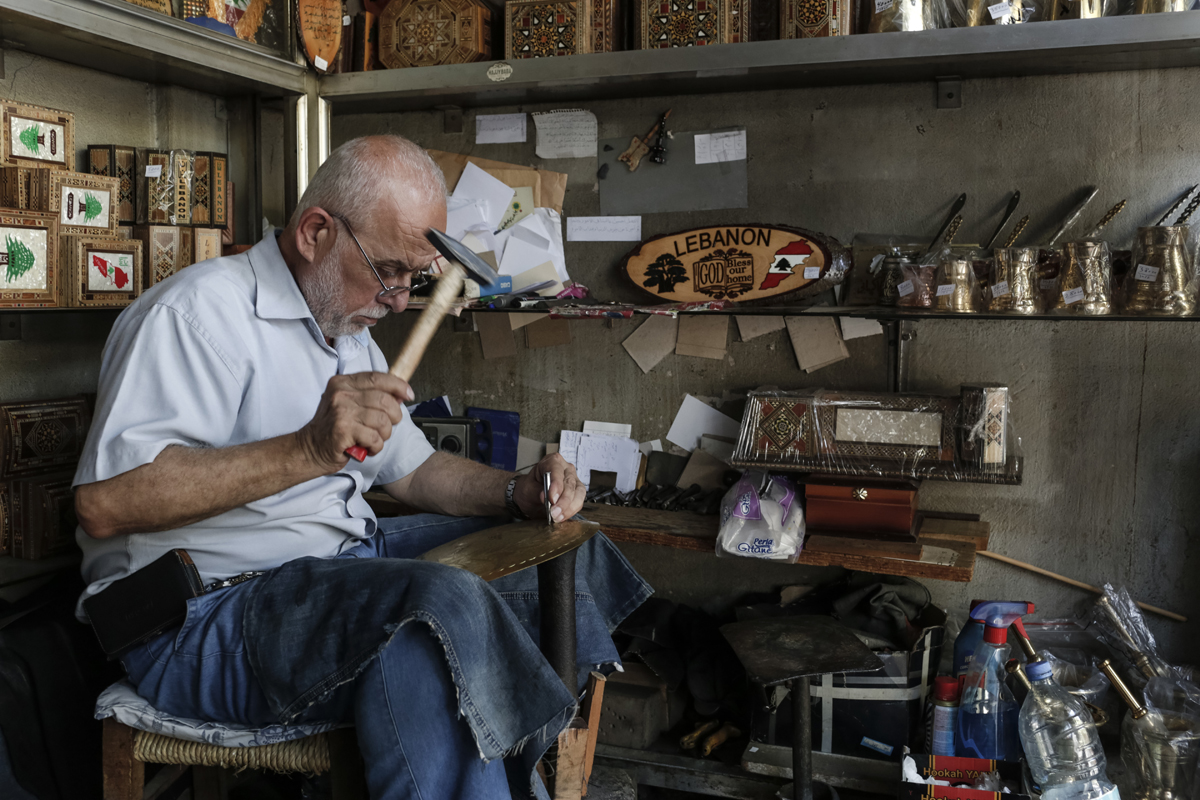
Cheaply produced goods from overseas and a global transfer to more durable and affordable materials means that Lebanon’s copper and brass trade is in a lull, but there is some hope, as Amer points out, “People always like shiny things.”
Where to Buy
- Tripoli: Zouhair El Tartousy | +961 3 384 108
- Beirut: Noubar Eskidijian | +961 1 502718; Elias Najb Mouawad |
+961 1 351343
mot.gov.lb, destinationlebanon.gov.lb
Loading

